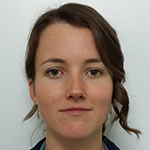 It’s November, Foundation Year 2. You’ve just survived your first year as a doctor, and all the career guidance that your pot-luck mixture of foundation posts have provided you with is that surgery isn’t for you. It’s night three of four shifts, and in a rare moment of calm, you have the realisation that the bullish deadline for specialty training applications is thundering toward you. Choose now. For the rest of your career. Yikes.
It’s November, Foundation Year 2. You’ve just survived your first year as a doctor, and all the career guidance that your pot-luck mixture of foundation posts have provided you with is that surgery isn’t for you. It’s night three of four shifts, and in a rare moment of calm, you have the realisation that the bullish deadline for specialty training applications is thundering toward you. Choose now. For the rest of your career. Yikes.
Like many in the same position, I had considered jumping ship to the “greener” grass of the Southern Hemispheres.
Seeing a feature about Broad Based Training (BBT) provided another option. The training covers general practice, medicine, paediatrics and psychiatry; includes protected 10% days which are spent “crossing over” into a partner specialty; and provides the opportunity to follow patients as they are swept along on the tides of the healthcare system providers. The prospect of being treated as a “proper” trainee in that specialty, rather than the relentless service provision that often befalls locum doctors, was appealing. Where do I sign up?, I thought.
The application process was stringent, ensuring that successful candidates were on par with equivalent specialty applicants. But the knowledge that once you were offered a training post then you were guaranteed an ST2 job, in whichever of the four specialties you chose, was reassuring. BBT can be used to attract good trainees to sometimes difficult to fill locations.
Six months of training in each specialty were welcome. Being encouraged to go to paediatric clinics, GP training days, and to observe and perform procedures such as lumbar punctures and chest drains, allows doctors to sample what it is like to be a trainee before committing to that specialty. A focus on becoming a generalist allows freedom to choose the most interesting educational opportunities, rather than ones that tick most boxes for the Annual Review of Clinical Progress (ARCP). Service provision is balanced with education – I found this especially refreshing.
The 10% crossover days helped me to understand how the NHS’s community and secondary care services interact, and enabled me to follow-up patients referred between them.
Rather than getting caught up and frustrated by the snares of NHS protocol and operating procedures, BBT demonstrated a way the cogs can work together in such a machine to provide outstanding care for complex patients. These 10% days also allowed trainees to sample subspecialties like learning disabilities in psychiatry, or community paediatrics; exposing doctors to areas of the specialty they may not have considered.
Medicine has changed dramatically. With such advances in the medical field and increase in life-expectancy, very few patients now present with single pathologies; be it to primary or secondary care. The Academy of Medical Royal Colleges recognises that broader training for doctors would better address the changing needs in patient care; these challenges are not going away.
Those who undertook BBT are more likely to feel confident in their choice of career, and research has shown them to display significantly greater satisfaction with their choice of specialty compared to comparison trainees at the same point. This is likely to reduce drop-out rates and rota gaps; in turn protecting colleagues in that specialty. At a time when barely half of F2 doctors are applying for training posts, providing a pathway allowing some time to make an informed choice of specialty would help prevent many from leaving the NHS. Finally, while the programme recruits into four specialities, most BBT trainees chose to exit into GP; this programme will ultimately increase trainee numbers in a specialty facing a well-documented recruitment crisis. Scotland are launching BBT for trainees in from 2018. More BBT posts are called for.
Miranda Cole is currently completing her Core Medical Training in Bristol.
Competing interests: None declared.
See also: Scrapped training programme was helping to increase GP numbers, review finds
